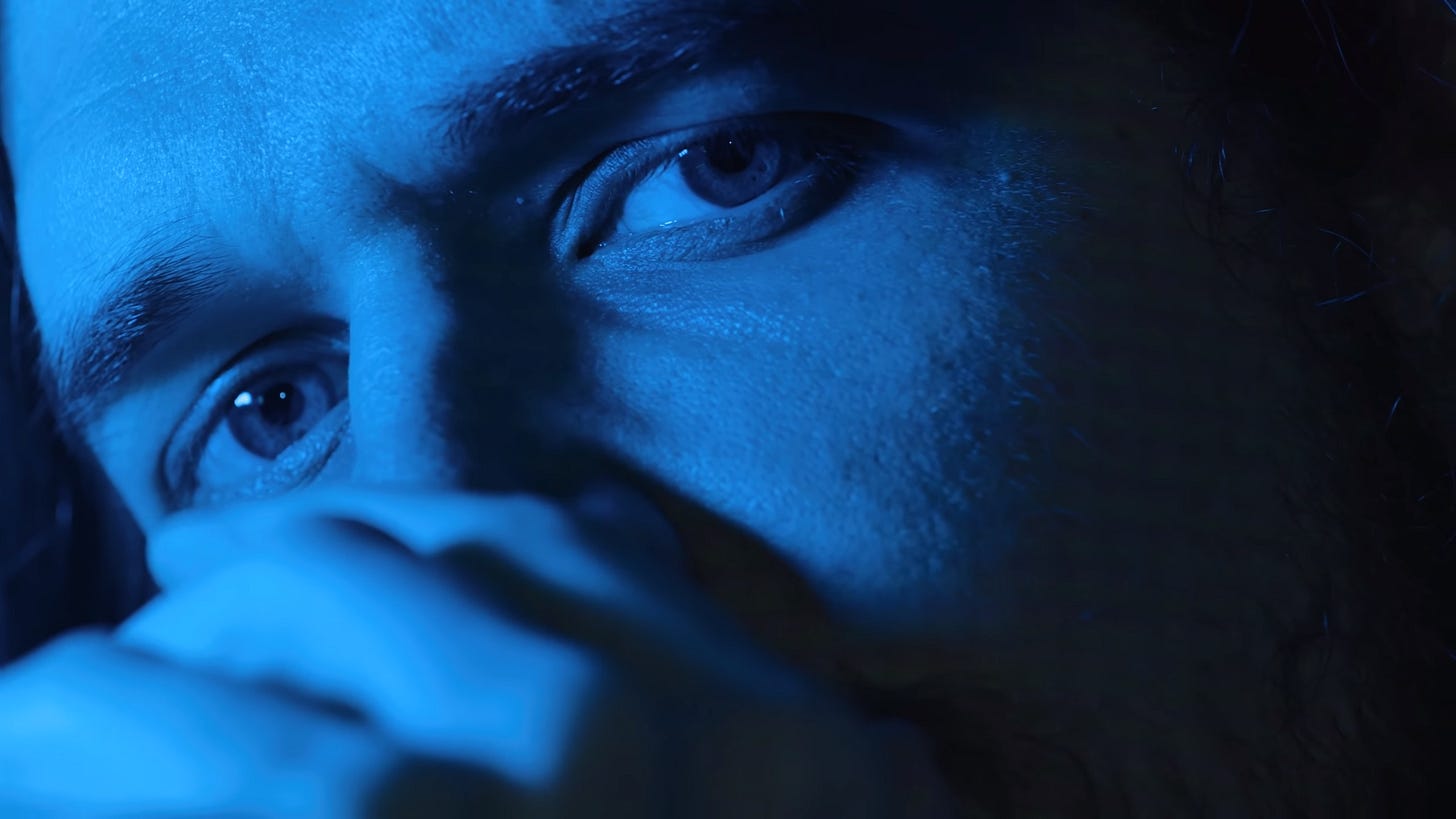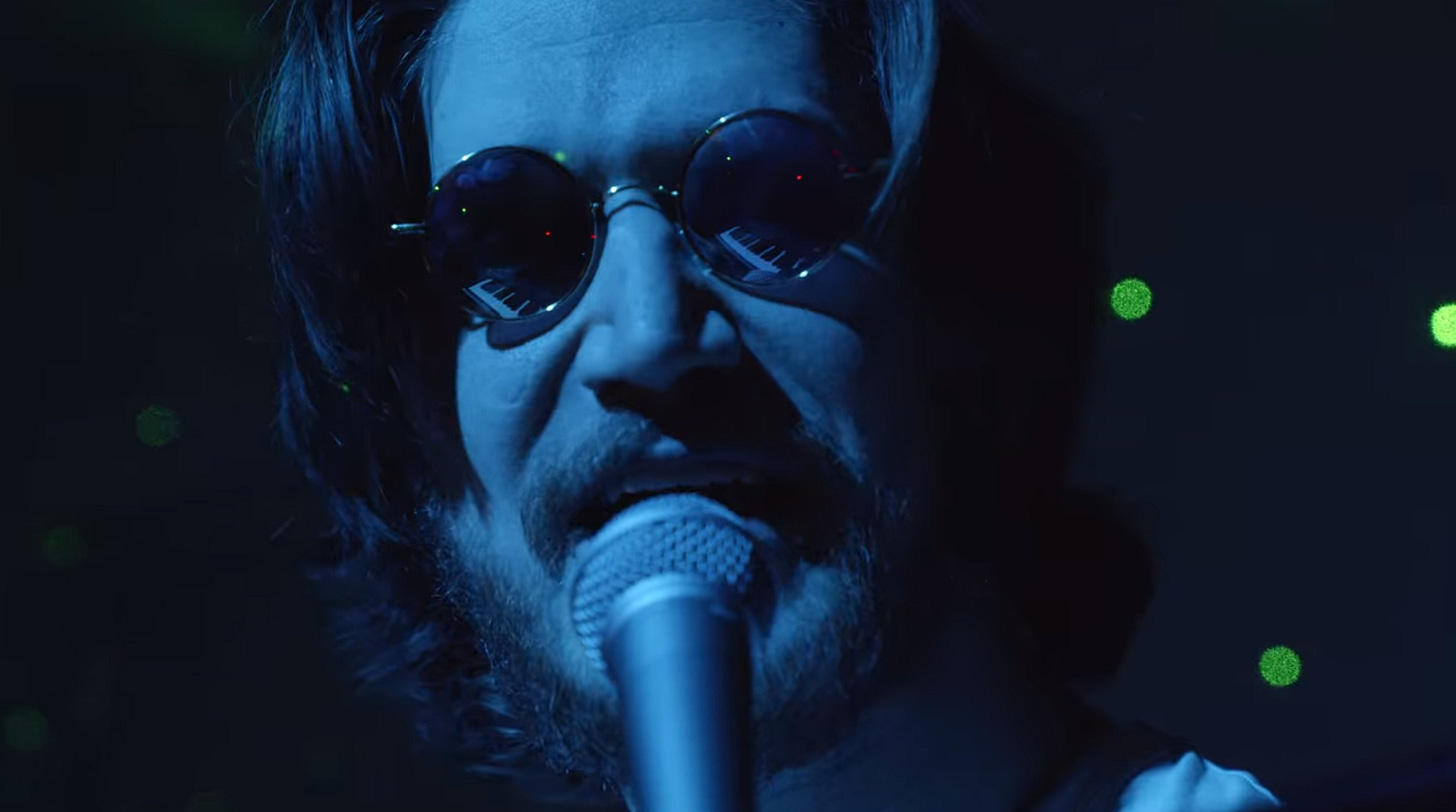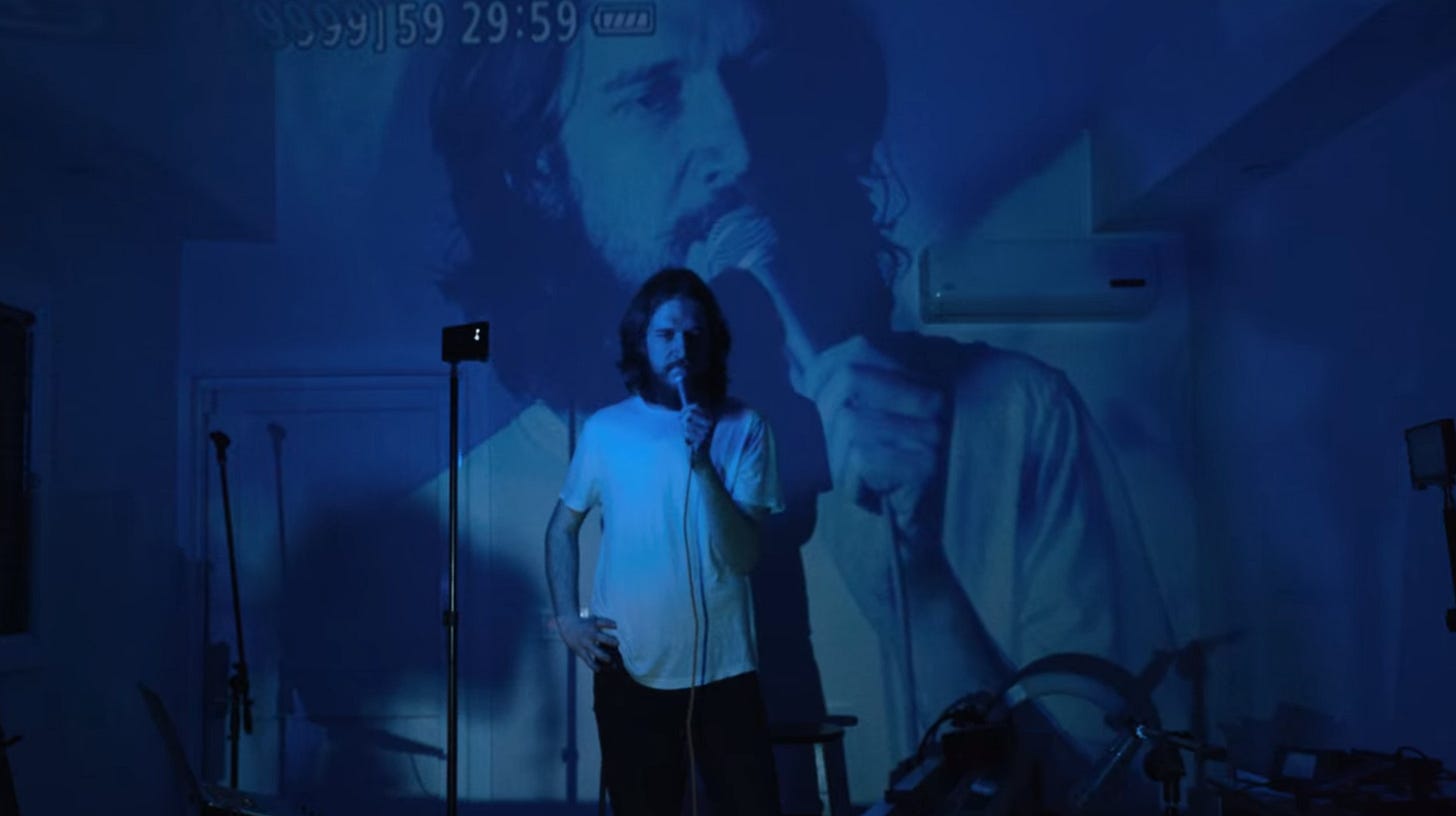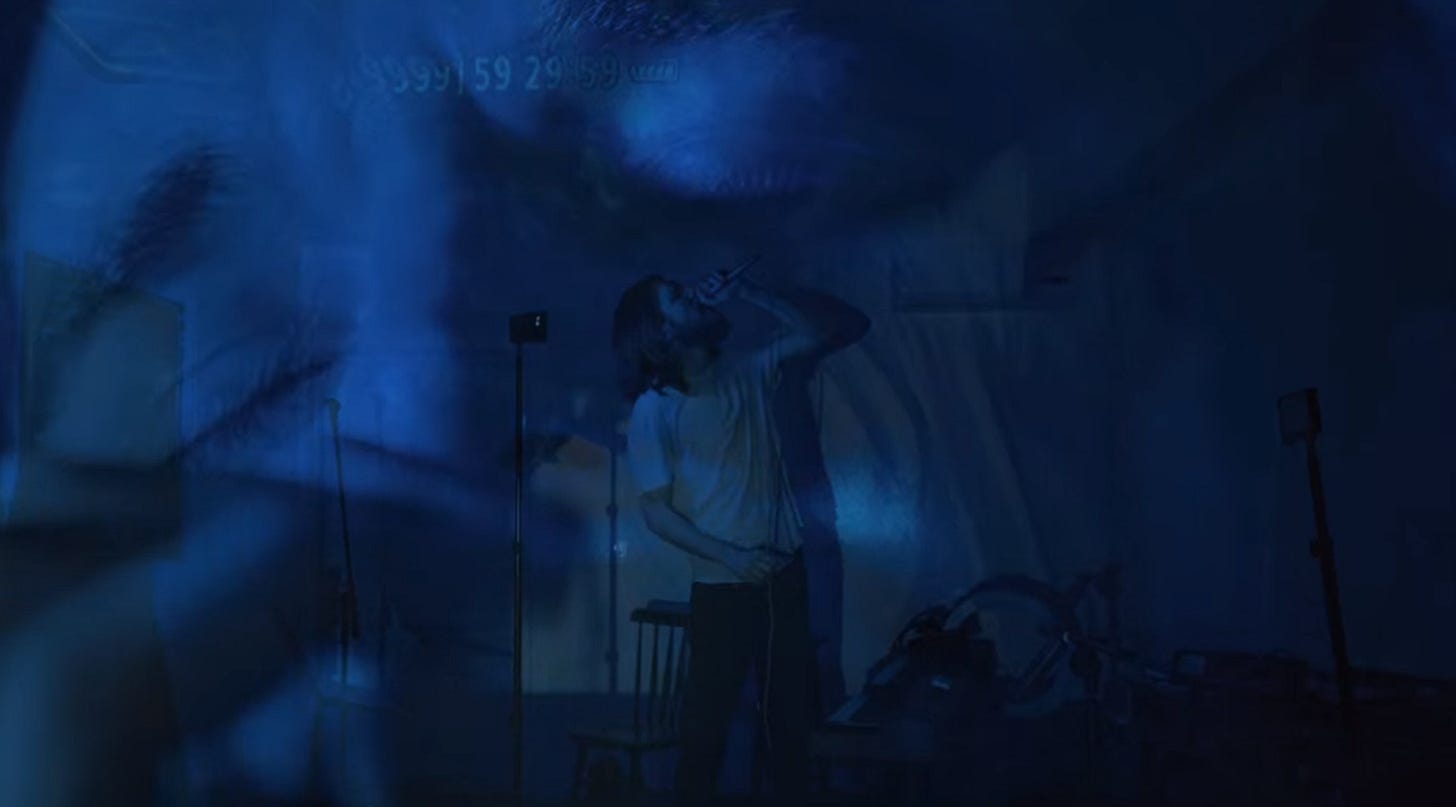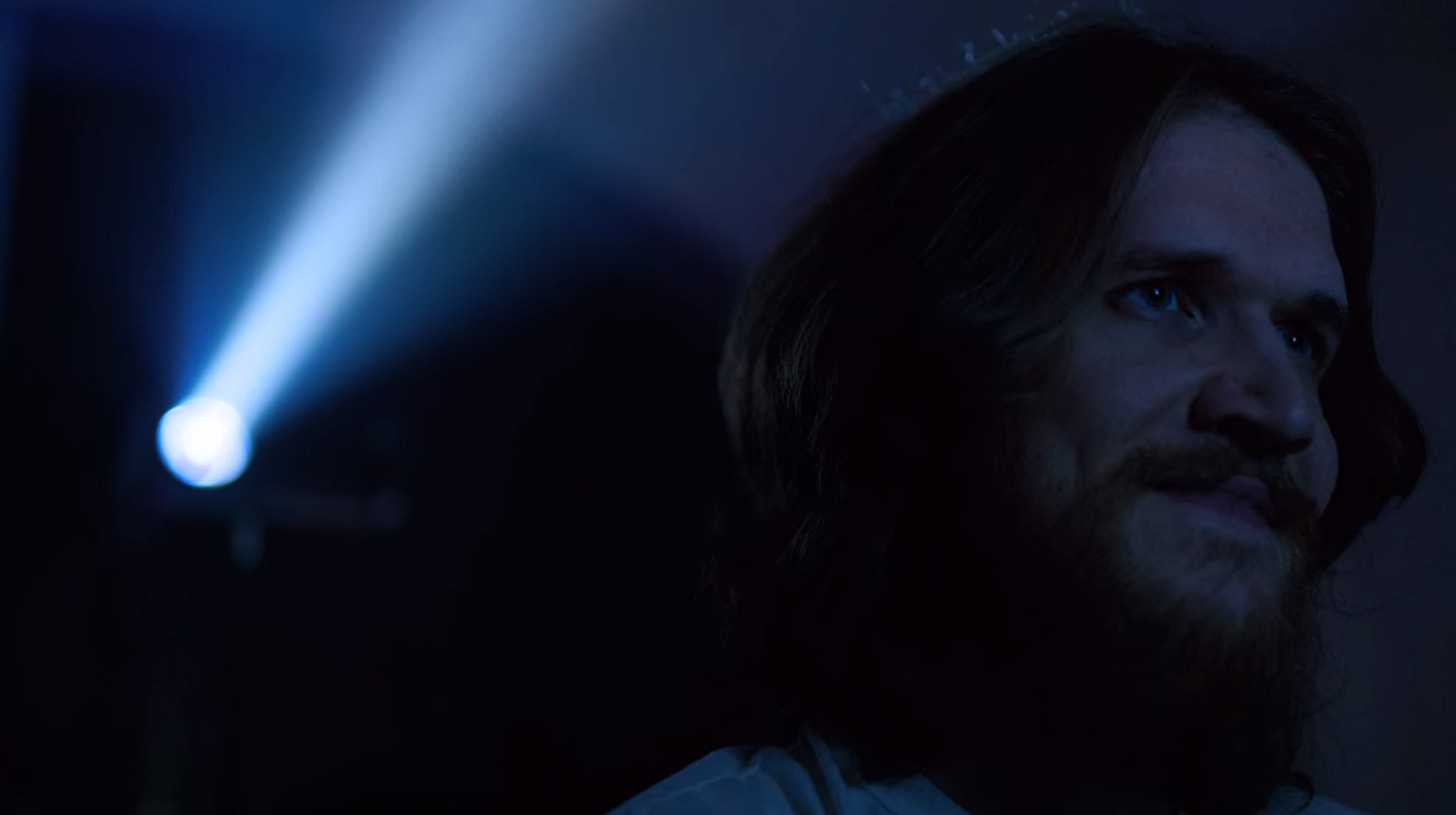Bo Burnham is joking about the climate apocalypse
Inside: Burnham's Comedy vs Climate Nihilism
If I wake up in a house that’s full of smoke, I’ll panic, so call me up and tell me a joke.
Here’s one:
First, imagine making this joke in 2010: “I was watching Al Gore on CNN, he was talking about the environment and then, out of boredom, my pet polar bear shot himself.”
Then, making a special in 2021, saying the world is over and done, how we won’t make it to 2031, that the climate apocalypse has doomed us, but hey, “what can you say, we were overdue.”
Now, that’s ironic.1
Introductory Rundown
Bo Burnham’s Inside is a “comedy” special made in, for, and from the pandemic. It explores living, struggling, coping, and surviving in the context of lockdown life: shut in a room, searching for some morsel of authenticity while besieged by encroaching privatization and hollowness; and it’s all self-paradoxically set on and about the one, true stage of the 21st century: the Internet.
So, we’re off to a heavy start and I haven’t even mentioned the apocalyptic presentation of climate change. Though, trust me, the show is funny. Burnham is able to weave comedy and theatrics into an anxious contemplation on life seamlessly, garnering much critical and popular acclaim for it. The show immediately spawned millions of views, a slew of articles, and a host of fanboying video essays. Even the climate angle has already been covered in an astute piece by Kate Yoder at Grist. As such, seeing that I’m going to be taking a similar approach, I want to respond a bit to Yoder’s piece, first highlighting some of her keen insights and then moving on to an aspect that I think has, so far, avoided discussion.
Climate change comes up a few times in the special, but never in the forefront, always in the peripheral. As Yoder points out, “Inside isn't really about the climate crisis.” It’s about the struggles Burnham feels in trying to pursue both his artistic desires and his yearning to “leave the world better than [he] found it,” along with trying to find motivation to simply get through each day.
But climate change and its framing of crisis is still a constant theme throughout the show, always serving as a “touchpoint of doom… haunting you in the background,” as Yoder puts it. Increasing privatization is subsuming the world, ever-present social media is poisoning our minds, and in case that wasn’t enough, our natural, planetary habitat is doomed.
The climate ends up being a partner-in-crime to the Internet. Where the climate is impending physical doom, the Internet is realized digital doom. As someone who grew up as sibling to and found fame because of the Internet, Burnham is keenly synced in to its damaging effects, which are explored in varying degrees through “White Woman’s Instagram,” “Sexting,” and “Welcome to the Internet.” The Internet, the medium of our digital lives, cries out “apathy’s a tragedy and boredom is a crime!” It permeates our existence and offers infinite content, telling us to “be happy, be horny, be bursting with ~raaaage~. We’ve got a million different ways to engage.” Burnham, as the Internet’s representative, presents these catchy choruses as an over-the-top villain whose maniacal laughter assures us he knows that he’s already won.

The Internet-climate dichotomy is most precisely drawn out at an inflection point in “That Funny Feeling,” a simple, acoustic guitar number that recounts a host of seemingly innocuous but decidedly unnerving ruminations:
Female Colonel Sanders, easy answers, civil war
The whole world at your fingеrtips, the ocean at your door
The livе-action Lion King, the Pepsi Halftime Show
Twenty-thousand years of this, seven more to go…Total disassociation, fully out your mind
Googling "derealization," hating what you find
That unapparent summer air in early fall
The quiet comprehending of the ending of it all…
Finishing with the doomed refrain:
Hey, what can you say?
We were overdue
But it'll be over soon
You wait…”
The song moves somewhat away from the digital focus present in the preceding parts of the show and more into the “much less real” physical world and climate. The sense of defeat, that we had a good run but the show’s over, is front and center. And this theme maintains, with similar tone, in the following song and climax of the show, “All Eyes on Me.”
AEoM is Burnham’s third rendition of an introspective, anxiety-filled comedy show finale. First was “We Think We Know You” from What. and second was “Can’t Handle This” from Make Happy. Among the three, AEoM stands on top in terms of execution and thematic weight. Like CHT, AEoM is part-monologue, part-song which looks directly at the audience, explicitly asking “Are you feeling nervous? Are you having fun?” The spoken word then moves on to a reflection about how Burnham had just achieved decent mental health and was looking forward to performing live comedy again when the pandemic hit, life serving him an ironic and bitter joke. He ends the monologue as the laugh track plays, and then, coming to the last verse before the final daze of choruses, Burnham despairs:
You say the ocean's rising like I give a shit
You say the whole world's ending, honey, it already did
You're not gonna slow it, Heaven knows you tried
Got it? Good, now get inside
The last line transitions to a multi-part harmony with a higher register imbuing an angelic effect, Burnham singing, “We're goin' to go where everybody knows everybody knows everybody…” before ending with a callout to the viewer to GET THE FUCK UP, a following call for prayer directed towards the singer, and a final fall, flatline, and “death.” Burnham wakes up in the next scene above a red bar which resembles a pool of blood pooling under his head.
Climate Nihilism
The straightforward sentiment is unavoidable, as Burnham has repeatedly shouted at us again and again, it’s over. And when this mantra of defeat is applied to the physical world, we get climate nihilism, the rejection of the existence of meaningful climate action; we are doomed, it is over, the climate apocalypse is already extant. This is the view I would attribute to the Bo Burnham that tells us to “get inside” in AEoM. And some aspect of this “realization” of the severity of the climate crisis (though, surely not the pessimism towards action) is what Yoder refers to when she ends her article by saying “…Burnham is not joking about the climate apocalypse.” But I think there’s something deeper here that calls for unearthing.
Taken at face value, Burnham’s presentation is more often that not that of the hopeless cynic and critic. Looking through our two main lenses, first, our digital end is already here and has been so for some time; Burnham’s conception might place its dawn around the start of Web 2.0. And while our physical end is not quite literally on top of us in the same way (it’s at our door, not our fingertips), it presents the same futility of resistance and absolute inevitability.
But a bit deeper down, we can see that Burnham’s climate references actually get to the heart of the entire special, a heart which imbues hope with every beat. Climate change is already upon us, but its true power and harm is a surging tide that has so far risen only up to our shins. Where a face value reading of Burnham’s (climate) commentary fails is as he presents the tide’s rise, to the point of total submergence, as a necessity. The certainty of weathered apocalypse is climate nihilism and it is unjustified. And that’s precisely the point; that’s the joke.
Combative Comedy
This climate crisis is unprecedented and utterly terrifying. That which instills such deep and dark fear in us is a prime subject to be torn down with the trivializing force of comedy. To laugh at something is to reject that thing’s demand of solely severe and somber acceptance. Being able to laugh at something means, despite the thing’s housing of sadness or terror or despair, being able to view the thing on your own terms. You can accept its importance and negative aspects, while still self-determining how you want to take it in totality. And if that means being able to find something funny in it, all the more power to you, and not it.
This kind of combative comedy is a tool Burnham has made use of time and time again. Reaching back to “Sad” from What., Burnham presents an entire song about ostensibly sad topics (like a depressed onion cutting itself or a homeless man named Rich) that gets continual laughs from the audience, with the song even meta-commenting:
I've been telling you guys terribly sad things this whole song. You haven't been sad at all. You've been happy, no, you've been laughing!
And while Burnham, in the very next verse, does go on to acerbically parody the idea that comedy can solve all the world’s issues, even essentially calling himself a sociopath “capitalizing on the most animalistic impulses of the public,” the point that comedy can make sad things more manageable still stands. When we see Burnham throughout Inside struggling against depression to get work done in his room, the value of something which can make the tough things more bearable shines as a blinding necessity.
We don’t even have to look outside Inside for an example of this view towards comedy. In the aptly named second number, “Comedy,” Burnham grapples with the hubris of wanting to be the materially well-off performer getting paid for being an attention attractor and the altruism of wanting to be a positive force for change:
And I want to help to leave this world better than I found it,
I fear that comedy won’t help, and the fear is not unfounded.
The song is continually subject-critical, but Burnham’s authentic desire to do something meaningfully good through his comedy and art is undeniable. The critic gets the most stage time, but the advocate, sometimes literally and sometimes metaphorically, gets the final word.
Back to Climate
Now that we have a deeper understanding of Burnham’s comedic approach, we can see more clearly his interplay between climate and comedy. While a straight-faced, full-throated argument about how our world is doomed is condemnable for simply being wrong, a comedy bit or reference about climate change feeling like an impending apocalypse can find justification, as we have seen, as a kind of coping mechanism. In attempting to understand and deal with the great fear that the climate crisis brings with it, it is natural to explore our responsibility, the true implications of the threat, and how we are supposed to deal with it.
This is an aspect which I think is, nominally, missed in Yoder’s article. Burnham is taking the crisis seriously, as she notes, but he is doing so as he does with so many other serious topics, by joking about it. It is precisely because it is so serious that this tragedy necessitates comedy. And while Burnham often presents a somber tone when communicating about the climate (to the point that he does seem fairly serious about the end of the world), his nihilism is not something ultimately endorsed by the show.
In the most impactful moment of the special, the climax of AEoM, Burnham speaks directly and deridingly to the hopeful advocate, telling them “you won’t stop the climate crisis,” even though, sympathetically said, “heaven knows you tried.” Then, assuming a position of condescending authority, Burnham delivers the seminal line:
Got it? Good, now get inside.
The climate nihilism present in Inside feels overwhelming, just like the climate crisis itself. Burnham is afraid of the crisis, as we all should be, and this fear presents itself with immense power; the line above consistently hits me like a freight truck with each replay of the song and the special. It is a “truth” that feels so overriding. But Burnham refuses to have it be the last word.
“Inside” is the show’s title, but it is not where Burnham wants to be. While (almost) the whole show, and all of our laughter, takes place inside Burnham’s one room, “inside” is where the digital world rules. “Inside” is where our natural forms of community and social interaction don’t exist. “Inside” is a house of depression, isolation, and suicidal contemplation.
Burnham is expressing dozens of feelings and viewpoints throughout his show; there is every sign that this one telling us to stop trying to fix things and to get inside is not the one we are meant to follow for good advice. It is a devil, a personable devil who sympathizes with us but a devil nonetheless, on our shoulder demanding we submit to our worst impulses. If I had to take a wild guess, I would say Burnham is even trying to say the opposite, that the best thing to do is get outside!
In-show resolution is not found until Burnham’s next song “Goodbye” brings back “Comedy”’s line about a house fire, with Burnham, now in the hypothetical inferno instead of us, asking us to call him up and tell him a joke.
Comedy (First non-intro song of the show):
If you wake up in a house that's full of smoke
Don't panic, call me and I'll tell you a joke
Goodbye (Last non-outro song of the show):
If I wake up in a house that's full of smoke
I'll panic, so call me up and tell me a joke
If either party of this performance is in a literal house fire, getting a call and a joke isn’t going to help us reach physical safety. But if our global house is on fire and we have to fight it from the inside over the next 3 decades, a joke or two might help lift our spirits and strengthen morale to ensure that we keep fighting to save all that we can. A joke doesn’t replace actual action, and Burnham would be the first one to remind us of that. The climate crisis is still the world’s greatest threat and will stand in history as progenitor of untold suffering. But if a joke can help us all cope, find community in our shared pain, and keep on fighting the good fight, then let’s join Burnham in joking about the climate apocalypse.
This opener is likely more acerbic than it is meant to be, but hey it rhymes.


